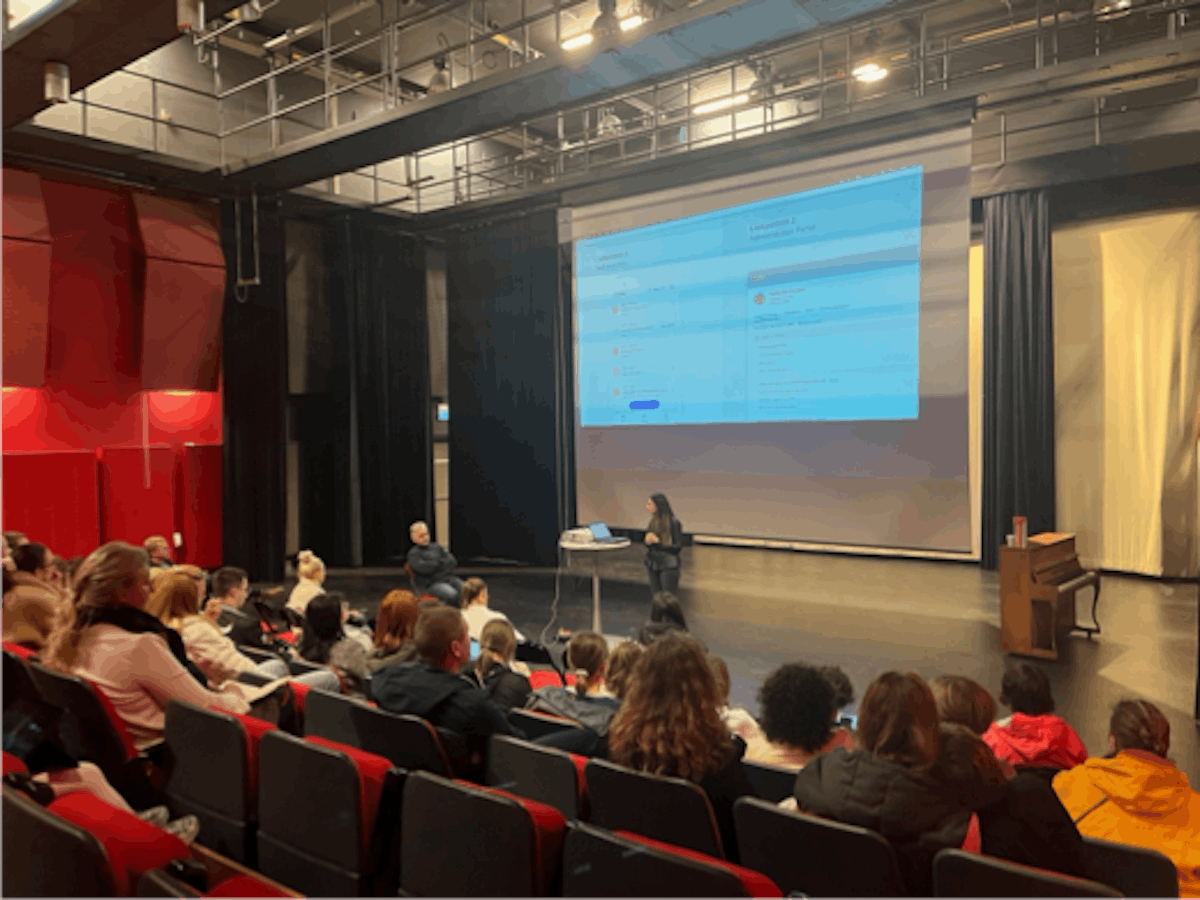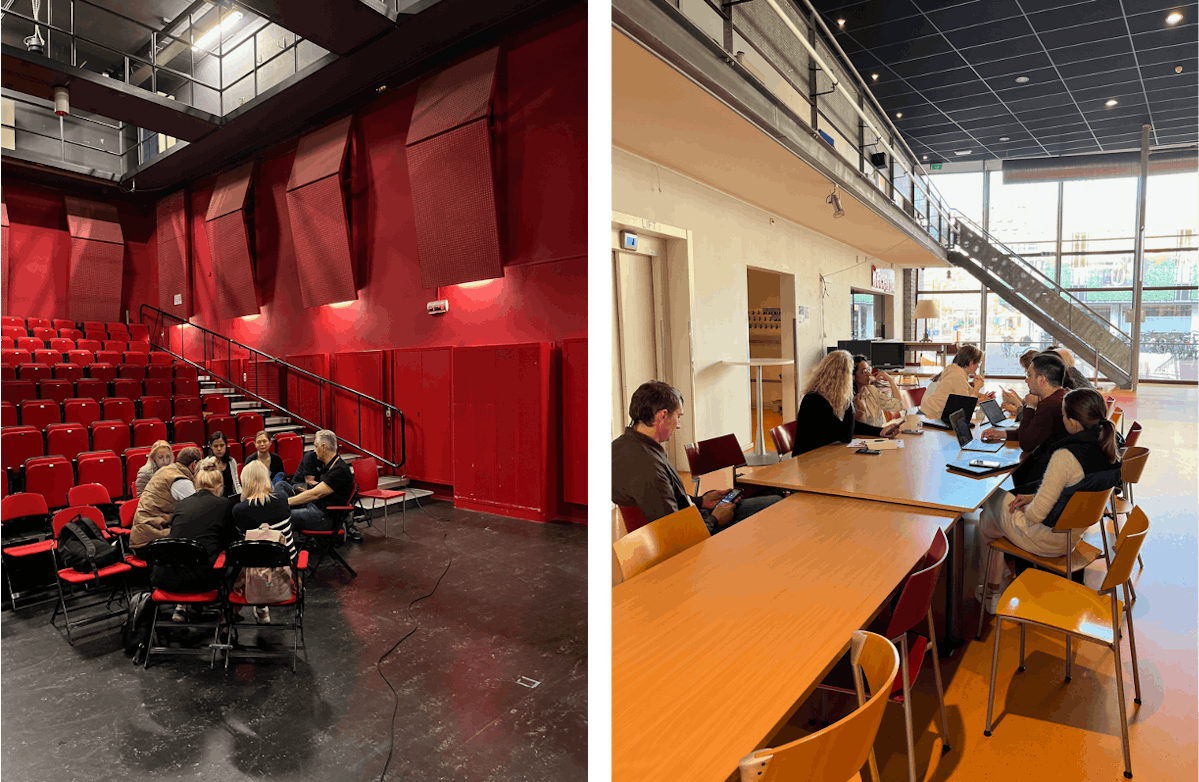Skills Passport Helps Ukrainians in Amstelveen Attain Jobs on the Right Level
Last year, SkillLab and several organizations in Amstelveen, the Netherlands, collaborated on a 4-month pilot project to help Ukrainian refugees find a job that matches their previous level of experience. The article below, originally published in Dutch by Programmaraad, summarizes the project and its success story. We have translated it to share it with our English-speaking audience.
Collaboration of Participe Amstelland, Werkplein Amstelland and SkillLab
Amstelveen is home to more than 800 Ukrainian refugees. Despite having a good CV with education and work experience, they still have difficulty finding employment. Therefore, 50 of them participated in an experiment with the skill passport. They created a skills-based CV using the SkillLab application. Then, recruiters searched for jobs that matched their skills based on their skill profiles. After several stages, 32% of the participants got a suitable job on their level.
“We see that Ukrainians are regularly employed below their level,” says Elena Nabatova from Participe Amstelland, a welfare organization committed to an inclusive society in which all residents can participate. “Hence, we participated in the experiment with the Integral Skill Passport Program.” The four-month project was supervised by EVC Centrum NL and Hans Cremer of the Integraal Skillspaspoort (ISP). SkillLab was one of the partners in this project, alongside the municipality of Amstelveen, Werkplein Amstelland, Manpower and Salta Group.
Mindset and Motivation
A randomly drawn sample of 50 Ukrainians attended 5 workshops in the evening during which they were introduced to the Dutch labor market and the SkillLab platform. Through role plays and exercises, much attention was paid to mindset, motivation and personal contact. There were also job application training sessions and individual interviews with recruiters from Manpower and Werkplein Amstelland, among others.
Skill Profiles in Their Own Language
“In the workshops, participants created a skill profile in their own language in our app,' explained Ludger Weller from SkillLab. “SkillLab uses AI to conduct an individual skills interview for each participant. Matching after that is purely comparing skills in the CV with the requested skills in the job posting. The more overlap the closer the job is.”
Participants generated a skills CV in Dutch. 44 of the 50 participants completed their skill profiles. Of these, 35 were introduced to employers, of which 17 were invited to interviews. In the end, 14 Ukrainians were hired, which is 32%.

SkillLab's Vanessa Aswad trained the workshop participants to create their skill profiles with SkillLab application.
Social Interaction
According to Nabatova, what made the workshops successful was mainly the human touch. “The biggest success factor was the social interaction. We brought the group of Ukrainians together in a safe setting. They met in our theater where they had been before.”
“With the help of an interpreter, Hans Cremer of ISP spoke to the people in the room personally. He invited them to tell something about themselves: who are you, what are you good at? Remember, these are people who barely look at you and have no confidence that this will lead anywhere. On the second night, he still remembered the names of the people he had talked to the first night, which gave them confidence.” Weller adds, “He also used the printed skill profiles in the conversations with jobs that matched the profile.”
Stability and Future Prospects
Building trust and a personal bond is crucial, according to Nabatova, “They are people without status and they do not know the Dutch labor market. They live in uncertainty. What does my future look like? Am I going to learn Dutch or English? Am I going to establish relationships with Dutch people? Am I going to work here while there is war in my home country? They also feel guilty and want to send money to help their families.”
People fleeing war need stability and future prospects. “They want to belong and participate,” Nabatova continued. 'Work provides distraction. Work provides security and ensures that you are not constantly occupied with the situation in Ukraine and your future. With work you continue to develop yourself, establish relationships with other people and expand your network, making you less dependent on institutions.'

Participants were divided into smaller groups to create their skill profiles together.
Life Skills
Refugees are at a disadvantage in the Dutch job market to find work at their level. “If you worked at a big Syrian or Ukrainian company, that doesn't tell Dutch companies and recruiters anything,” Weller illustrates. “That's why recruiting by skills is so important; they are universal.
Meanwhile, through our app, people can take a skills assessment in 28 languages and create a skills CV in the language of the country where they reside. Every person brings with them life skills and during their education, internships, side jobs and employment, they have learned skills that usually are not recorded in a traditional CV. SkillLab's app gives candidates a list of the top 25 jobs that are close to their skills. The job in spot 6 may well be your match.”
I hired a man who ran a furniture fabric business in Ukraine. He is now a manager at one of our locations because of his social skills, among other things.
From sales to healthcare
A woman who had always worked in sales in Ukraine could not find a similar job here. Weller explained, “While completing her skills, she realized that she had taken care of her parents for years. With those acquired skills, opportunities to work in healthcare emerged.”
Nabatova also found new matches based on skills: “I hired a man who ran a furniture fabric business in Ukraine. He is now a manager at one of our locations because of his social skills, among other things.”
Another success story shows a woman who switched career from children books illustrator to Information Technology (IT). Thanks to the skills-based CV alongside her traditional one, Kateryna Kalinchenko was hired at an international IT company. The graphic designer and illustrator of 30 children's books was presented with a design case as an assessment to validate her skills. “If it were only based on her (traditional) CV, she would not even be invited,” the director of the IT company admitted.
Mutual trust
Dutch employers are still reluctant to recruit through skills. They are also afraid that Ukrainian employees will quickly leave the company again. Nabatova said, “Of course you hope that the war will end soon and that people can return to their own home, city and country. That's why employers are hesitant to invest in a Ukrainian. It is not unwillingness, but they still want more security and continuity. Still, it pays off handsomely. And when you invest in people, mutual trust grows and people stay longer.”
Are you interested in skills-based solutions for your work with job seekers? Contact us to learn more about it.